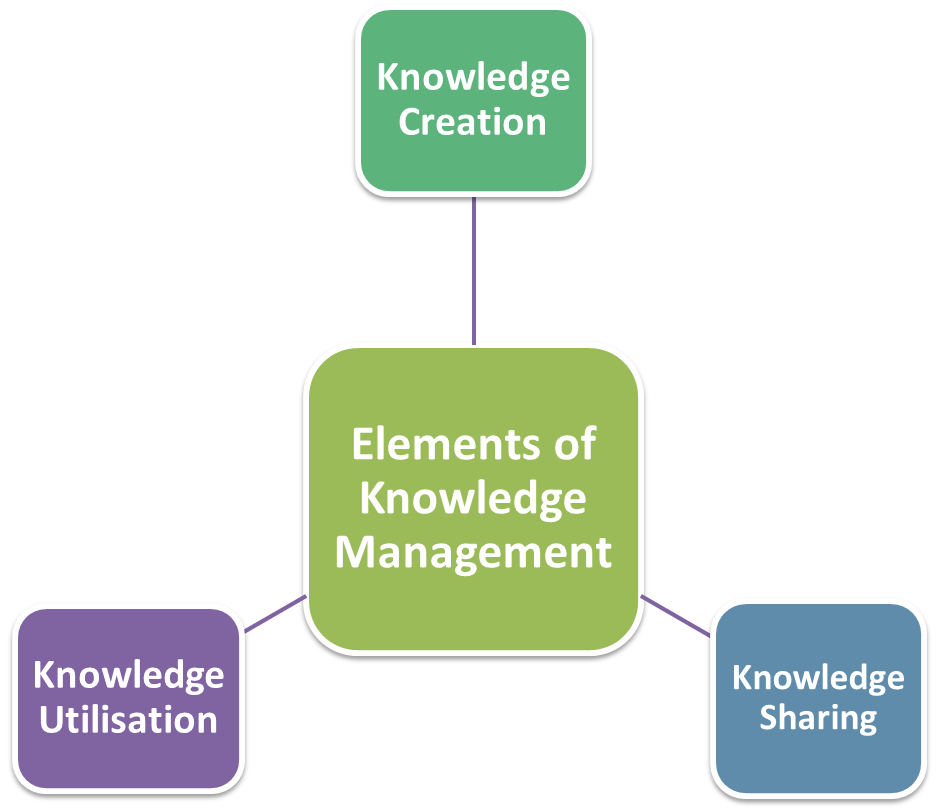Knowledge management or KM is the constant activity which involves procuring, developing, packaging, distributing, applying and managing knowledge or information. Knowledge management is defined as methodical approach of leveraging knowledge and information to improve organisational productivity, competency, innovation and responsiveness. Under this method, organisations acquire, use and store their useful information at a common place, which is easily accessible by Other business units. The main purpose of KM is to share information with other departments of the organisation, so that it can be best utilised. The method through which vital information gathered by several business processes is put in storage at a common database accessible by other business processes is known as knowledge management. Such information involves business rules, cases related to business negotiations, critical analysis, required suggestions, consultants, observations, research studies, etc. Thus, knowledge management is the acquisition of valuable information contributed by all employees, meant for sharing with other business processes and departments. Almost all organisations have sufficient accumulated knowledge, but it can be repetitive. For this purpose, the basics and concepts of knowledge should be clear in order to synchronise repeated information and provide good solution to the organisation. This is possible through gathering and conceptualising the required information and arranging it in a proper sequence so that the information is not distorted when it reaches the users.
Features of Knowledge Management
Following are the features of knowledge management:
- It is a never-ending process.
- It is all-pervasive. It is practiced by everyone in the organisation.
- Procurement. transfer, and storage of information along with expertise, experience of individuals, and delivering them when required is included in knowledge management.
- Work teams and experts need to work together under knowledge management.
- Social interaction also leads to knowledge creation.
- It is the main pillar of organisational effectiveness.
Elements of Knowledge Management
The three basic elements of knowledge management are:

Knowledge Creation: Gathering data, information, facts, and techniques pertaining to the organisation and its members comes under knowledge creation. Numerous ways such as experimentation, automated knowledge discovery, research and development, creative thinking, benchmarking best practices, observing customers, process improvement projects, customer feedback, etc., are used to generate new knowledge under knowledge creation. knowledge creation is a continuous process which involves constant gathering of information, disposing the obsolete information, and keep evolving as per the dynamic environment.
Knowledge Sharing: Communication and dissemination of the created knowledge throughout the organisation from the organisational database comes under knowledge sharing. Process engineering, information technology, and organisational dynamics are the basic methods used for knowledge sharing. It is essential that all these three tools work in uniformity to ensure an efficient flow of information to groups and its members, who are likely to be affected or influenced by it.
Knowledge Utilisation: A major purpose of knowledge creation and sharing is utilising it for resolving issues and problems in the organisation. This is the third element of knowledge management and is called knowledge utilisation. Usage and sharing of knowledge leads to its growth, unlike Other resources which get depleted after usage.
Importance of Knowledge Management
Importance of knowledge management is as follows:
Quicker and Better Decisions: Better and faster decisions are facilitated with the help of knowledge management. Past experiences of the associates can be used in finding solutions for similar kinds of problem thus facilitating a quick and right decision. KM also helps in preventing the challenges which were earlier faced by previous associates.
Enhanced Productivity: Knowledge management helps in enhancing the business’ productivity with the help of detailed information recorded in its database. Using this information, the organisation or individuals can minimise costs and make optimum use of organisational resources for achieving the intended growth.
New Products and Services: The use of previously accumulated information fosters innovation and thus helps in the production of new products and services. KM minimises the time and costs involved in research and development processes by providing creative ideas for developing new products. Past knowledge and experience of experts can be used for future productions, leading to more flexible and faster implementation of various business activities.
Business Intelligence and Analysis: Job of various business intelligence professionals and business analysts is to provide right information at the right time to the decision-maker. For this purpose, they gather information from numerous sources in order to evaluate the market, customers, and competitors, etc. In such situations, KM system enables the analysts to generate meaningful reports by retrieving and generating relevant data, and their sources from stored information using keywords and tags in the database.
Project Management: Knowledge management helps in finding solutions for currents problems of project management, cost estimation, and risk management based on past knowledge and experiences related to previous projects. Project managers can obtain knowledge, and enhance their skills by using a formal KM system to gather information regarding new projects. Above all, when the team members of a project are working in different physical locations, the communication between them is facilitated through the knowledge management systems.
Customer Service: The previously stored data in the KM systems aids customer service associates and help desks while handling similar problems and providing feedback-based appropriate solutions. Use of automated answering systems has become prominent these days in various organisations. The expertise profiles of employees based on knowledge management facilitate front-desk employees in transferring queries to concerned experts. These systems also enable personnel to get used to the customer’s style of raising questions through the application of technologies based on information-expansion.